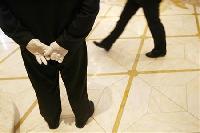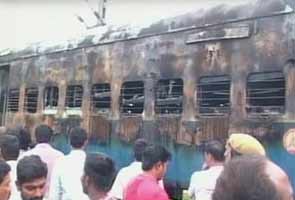The Reserve Bank of India (RBI) is expected to leave interest rates unchanged on Tuesday, seeing high inflation as a bigger danger than the slowest growth in almost a decade and keeping pressure on the government to revive the economy's fortunes.
Weaker-than-normal monsoon rains add to expectations that the RBI will keep its repo rate on hold at 8.00 per cent. High food prices resulting from poor rains may be beyond the reach of monetary policy, but they can add to inflationary expectations and tempt the government into spending more on subsidies.
Of 20 economists polled last week by Reuters, 19 expected the central bank to keep the repo rate unchanged.
After its mid-quarter policy review in June, roughly one-third of respondents had expected a July rate cut. Since then, RBI Governor Duvvuri Subbarao has voiced concern about high inflation, including for consumer prices, reinforcing expectations he will leave rates on hold.
Still, several market participants said the rapid deteriorating in the global economy as the euro zone debt crisis takes its toll suggested that the Indian central bank's decision may still be a close call.
"Over the past 6-8 weeks, the global situation has turned sharply adverse, and downside risks to the GDP growth projection have emerged. Upside risks to inflation seem limited at this juncture," said Hitendra Dave, head of global markets at HSBC in India.
On Monday, the RBI warned about a weakening growth outlook and upside risks to inflation in its quarterly review of the economy.
In June, wholesale price inflation rose to 7.25 per cent, while consumer price inflation hit 10.02 per cent. Wholesale prices are the main inflation gauge in India.
The RBI is also expected to leave the cash reserve ratio, the share of deposits that banks must keep with the RBI, unchanged at 4.75 per cent on Tuesday.
Indian stocks rallied on Monday, partly on hopes for a surprise rate cut, but debt markets remained cautious as benchmark 10-year bond yields rose slightly.
Subbarao has stressed the need for the government to reduce its fiscal deficit and improve the investment climate. He has said the central bank's 13 rate rises between March 2010 and October 2011, as it fought double digit inflation, were not the key reason for the slowdown in the economy, which grew at just 5.3 per cent in the March quarter, its weakest pace in 9 years.
The Indian central bank cut rates by a steeper-than-expected 50 basis points in April but has maintained a hawkish stance since, even in the face of widespread expectations in June it would cut rates again.
A continued hard line would make it an outlier compared with China, Brazil, South Korea and others, which have eased monetary policy in recent weeks to bolster their flagging economies.
The central bank has also been adamant that the government does its bit to boost the once high-flying economy.
It called on the government of Prime Minister Manmohan Singh to rein in spending on subsidies, but expectations that New Delhi may soon raise diesel prices to reduce its spending and borrowing burden and so alleviate pressure on market rates have been pushed back due to opposition from within the ruling coalition.
Singh spoke a month ago of reviving the economy's "animal spirit," but companies are still waiting for government measures, such as allowing foreign direct investment in supermarkets and airlines, to lift sentiment.
A study last week by Indian rating agency Crisil found that capital expenditure by 170 private-sector companies will fall by 35 percent on average in the fiscal year that ends in March.




